Before Traveling To Africa: What to Know
January 8, 2023
I’ve just returned from my month-long travels to Africa. I started in Cairo, Egypt, for three nights, spent a week in Nairobi, and ended 2022 in Accra, Ghana, for two weeks and a half.
I brought in 2023 in Africa; it was the best feeling ever.
I explored iconic landmarks in Cairo, Egypt, such as the Pyramids of Giza and the Sphinx. The busy streets, markets, and historical sites immersed me in ancient Egyptian culture.
In Nairobi, Kenya, I had the opportunity to witness the incredible wildlife in the Nairobi National Park. The breathtaking savannah landscapes and close encounters with elephants, lions, and zebras left a lasting impression on me.
Accra, Ghana, welcomed me with its lively atmosphere and vibrant music scene. I indulged in the local cuisine, including jollof rice and banku, while exploring historic landmarks like Cape Coast Castle and Jamestown.
Overall, my month-long travels in Africa were a transformative experience, allowing me to appreciate the continent’s diverse cultures, natural wonders, and warm hospitality. I’ve learned so much traveling to the continent, and I’m excited to share more of my experience and knowledge with you!

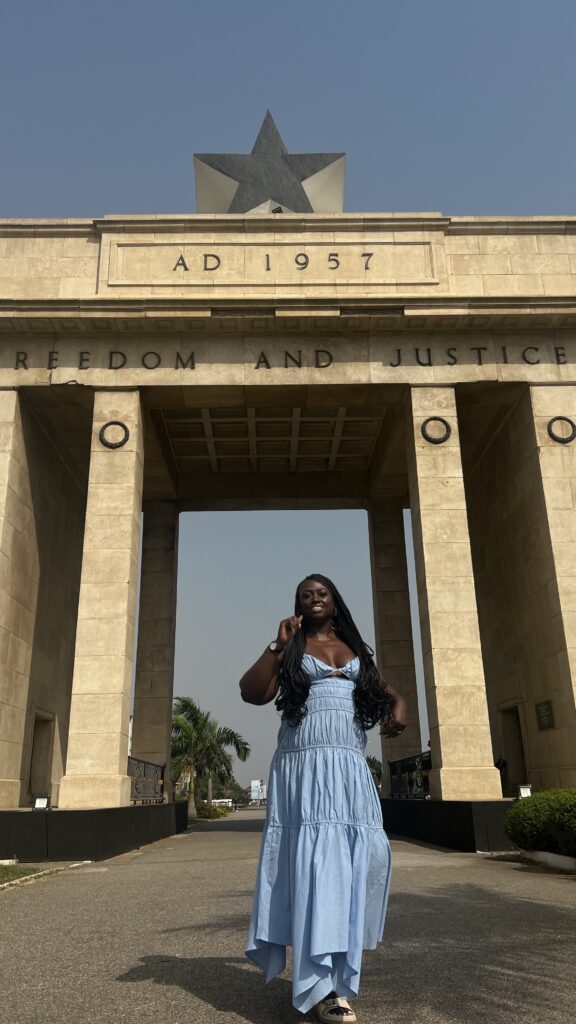
What We’ll Cover:
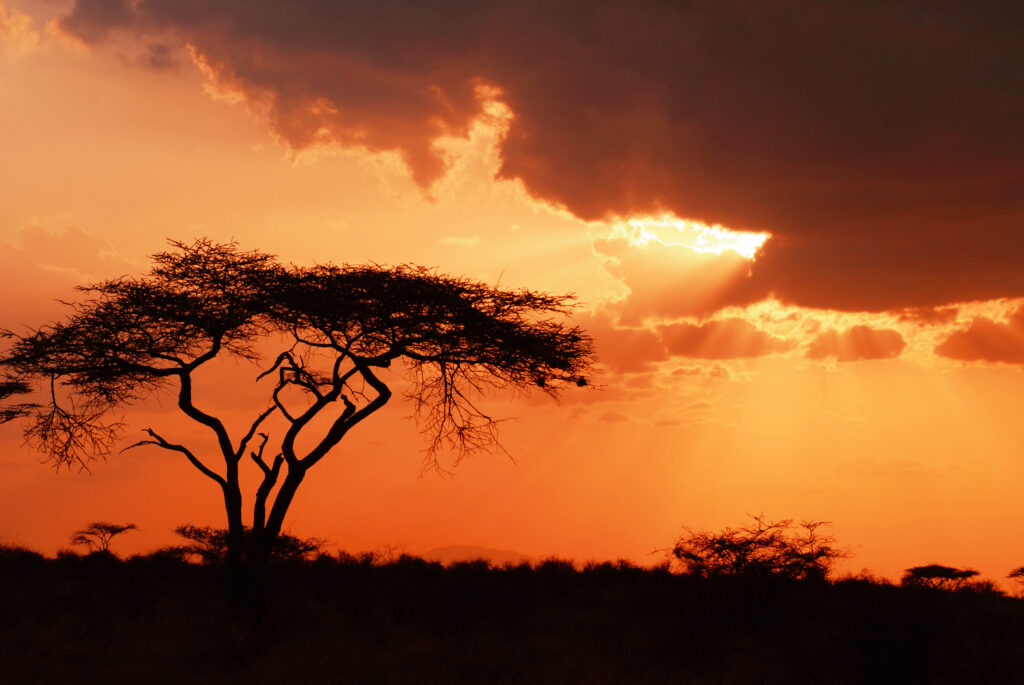
Before Traveling To Africa: What to Know
The continent of Africa is a unique and diverse place to visit. It’s a vast land with beautiful scenery, friendly people, and fascinating cultures. There’s so much to see and do in Africa that you could spend your entire life exploring it and still not see everything there is to see! Before you set off on your trip, though, here are some essential things to keep in mind when planning your travels:
Africa is not a country.
If you’re traveling to Africa, it’s important to note that Africa is not a country. It’s the continent where 54 countries and over 1 billion people live. If you want to know more about any specific country (like Egypt), check out the article on that particular country for more details!
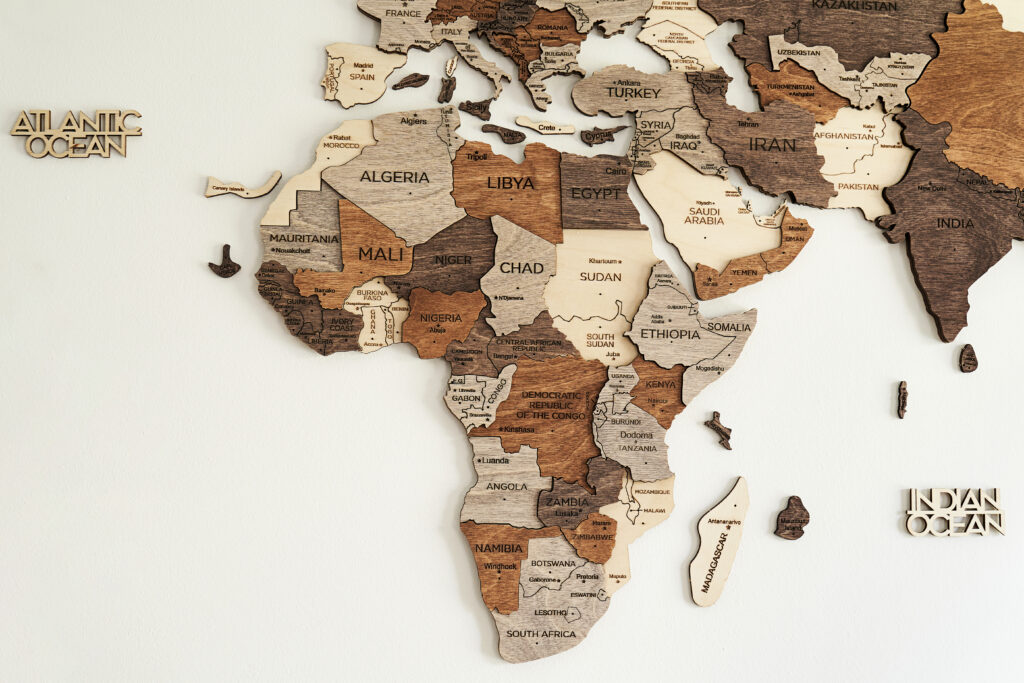
Africa is the second-largest continent in the world, with an area of 30 million km2 (11.7 million sq miles). Its population is approximately 1 billion, which makes up about 15% of the total human population on Earth.
The continent has a rich history and culture that goes beyond stereotypical images of poverty, war, and famine.
As an American, you might be familiar with the history and culture of Africa through stereotypical images of poverty, war, and famine. However, the continent has a rich history and culture surpasses these stereotypes. Many people travel to Africa to discover how rich its heritage is.
Africa is a great place to visit! It’s a continent of incredible diversity; it contains numerous countries with different languages, religions, and customs. There are also many places where you can find ancient artifacts that date back thousands of years in some cases. And if this isn’t enough to convince you why going on an African safari would be an unforgettable experience, let me tell you about my favorite part: seeing lions eat meat firsthand!
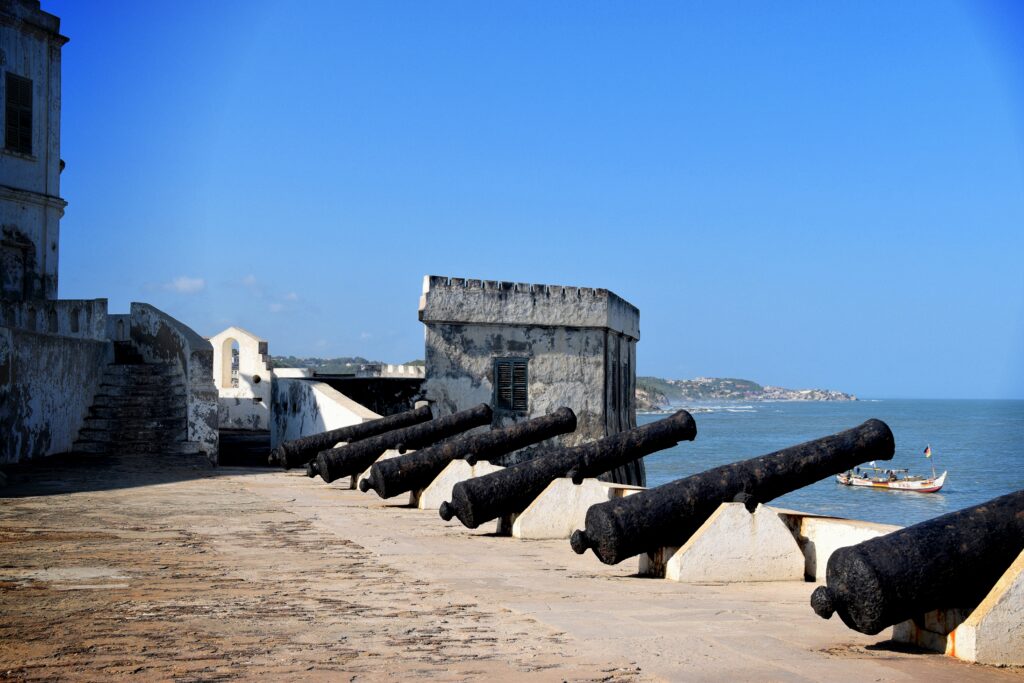
There is no language called African.
There is no language called African. You thought it was something like Swahili or Afrikaans, but it isn’t. You may have heard otherwise because Africa is a continent, not a country (54 countries in Africa). There are over 1,000 different languages spoken in Africa—so many that if an individual were to learn one language per week during his/her entire life, they would never master them all! In general, however, most Africans speak more than one language.
Africa is a diverse continent with many different cultures and traditions; therefore, the languages spoken in this vast land will vary greatly depending on where you go within its borders. Some examples include Swahili (spoken across East Africa), Amharic (spoken by Ethiopia’s majority Christian population), Hausa (spoken by Nigeria’s Muslim north), and Yoruba (the lingua franca of West Africa).
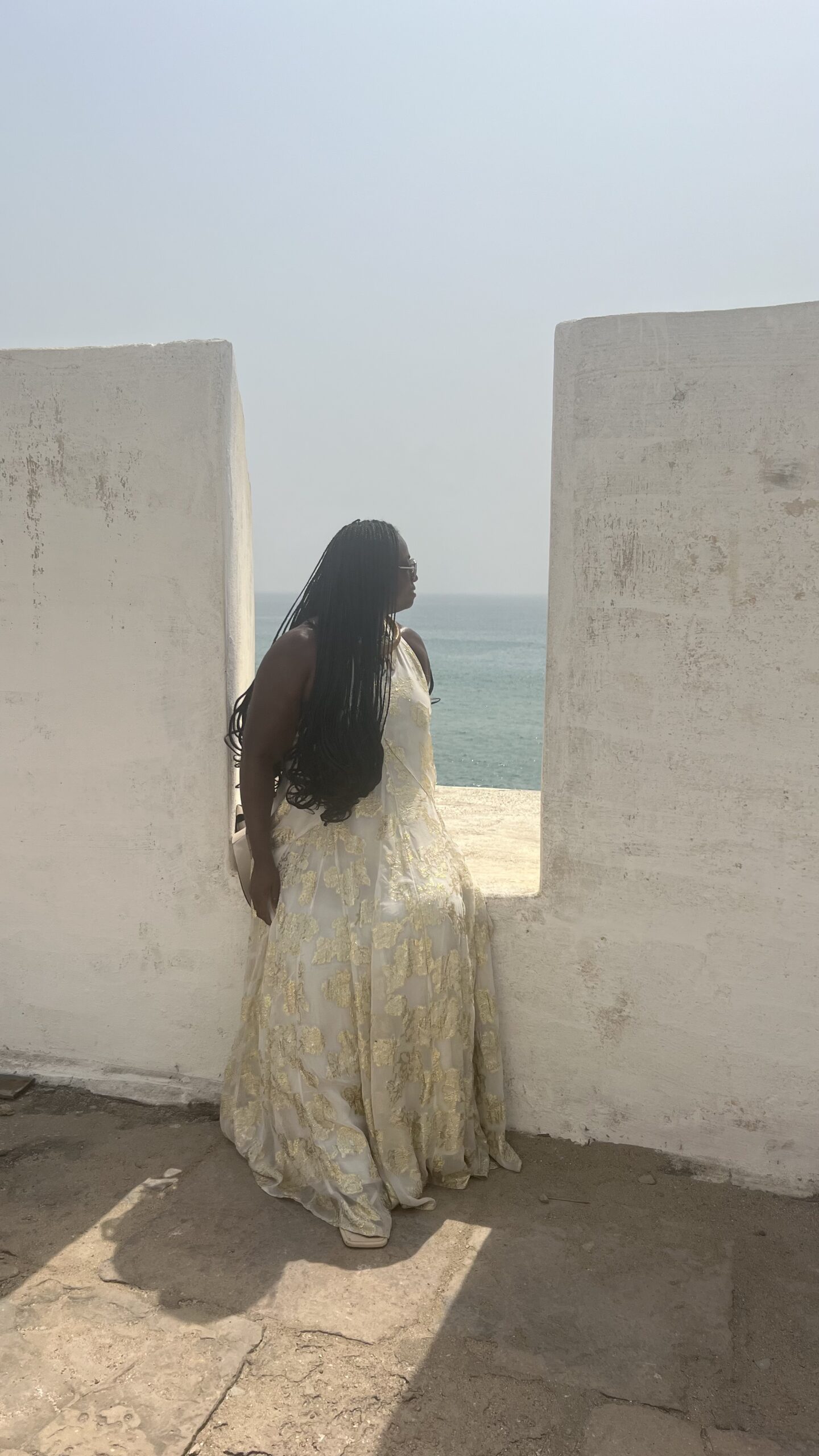
It’s not all about the safari.
Africa is a vast continent with many different cultures, people, and experiences. Yes, you’ll want to see the animals in their natural habitats on an African safari, but many other things besides wildlife make a trip to Africa one of a lifetime.
You could also try your hand at scuba diving in Mozambique, climb Mount Kilimanjaro in Tanzania, take part in an elephant-back ride through the Okavango Delta in Botswana, volunteer at an orphanage near Cape Town, or spend some time relaxing on the beach while sipping cocktails on the coast of Kenya!
M-pesa is a fantastic innovation.
M-pesa is a mobile money transfer service that allows people to send and receive money via cell phones. Developed by Safaricom in Kenya, M-Pesa has since been implemented by other mobile phone companies. This innovation is fantastic because it allows you to send money to your family back home while you’re on vacation or to work abroad and pay for groceries and laundry services. Your loved ones can pay bills with the same convenience they have at home—all they need is a cell phone!
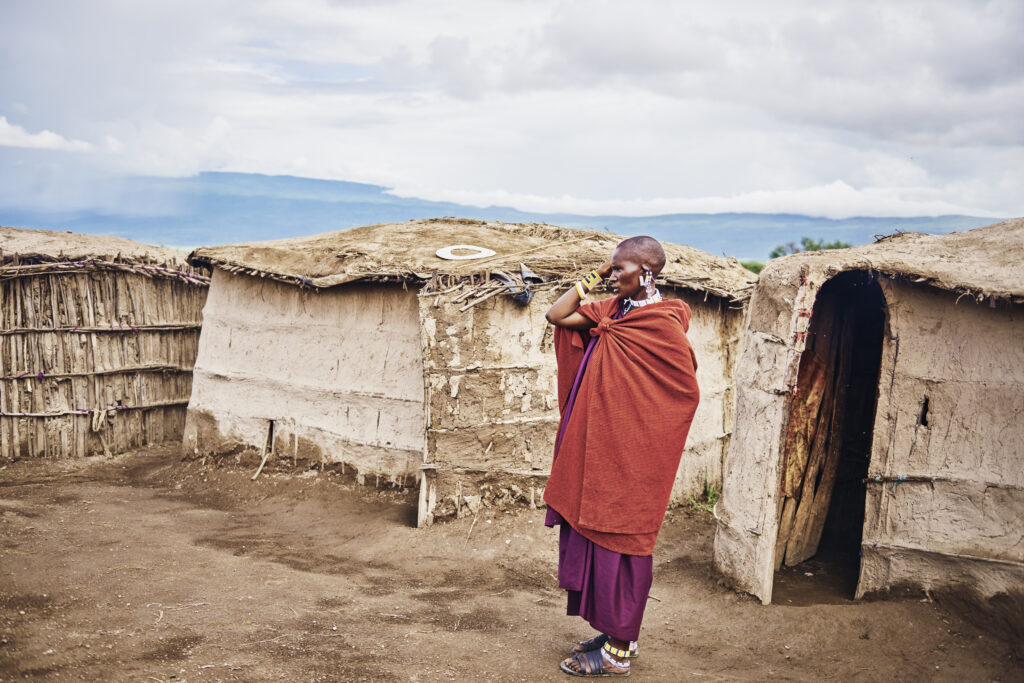
The people are incredibly friendly.
The people of Africa are incredibly welcoming and friendly, which is part of the appeal for many travelers who visit. You will be warmly greeted by everyone you meet, whether you’re in an airport or at a local market, and that’s something worth smiling about even before you’ve left home! Part of being hospitable means offering assistance when needed—no denying this is what every traveler needs during their travels.
The food can be amazing.
Food is a big part of most African cultures and is delicious. You’ll get to try dishes like lentil soup, rice, and beans, pounded yams (also called fufu), stews often made from beef, goat, or chicken that take hours to cook over low heat on an open fire (called groundnut stew), and tea made with milk and sugar. The food is also very different from what you might be used to—it’s spicy and flavored!
I promise that if you’re willing to give it a shot, the food will become one of your favorite parts about traveling in Africa. And eating healthy while traveling around can be easy when so many fresh fruits are growing everywhere!
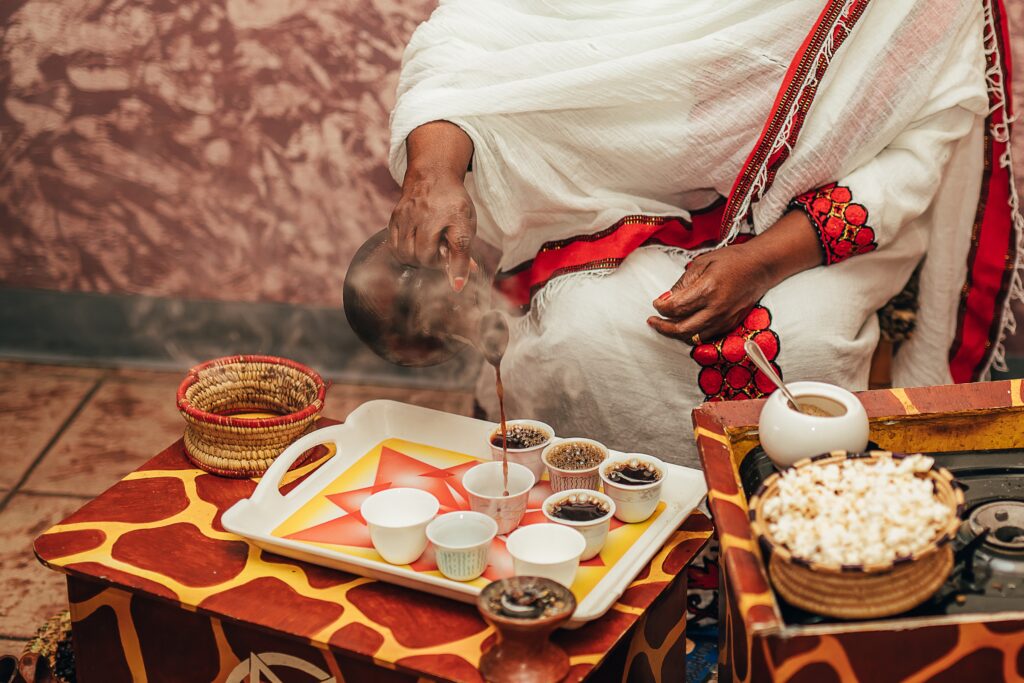
The infrastructure can be lacking.
Before you head off on your trip, it’s important to remember that the infrastructure can be lacking. Road conditions vary from country to country, sometimes even within a single country. Some roads have no lane markers or signs, making driving dangerous for anyone unfamiliar with the terrain. Power outages are also reasonably common throughout sub-Saharan Africa. This means that when you’re staying in hotels or hostels with electricity, don’t expect it to work all the time (or even most of the time). Internet service is also spotty; while in some areas where wireless connections are reliable and fast (e.g., urban areas), they’re unlikely elsewhere unless you’re willing to pay quite a bit more than what’s offered by major providers in North America or Europe/Asia.
There are issues to be aware of.
Before you go, you must be aware of some of the issues travelers can face. Malaria is one of the biggest risks you’ll have to face if you’re visiting a country that has not been vaccinated against it and, therefore, cannot fight off an infection. Other diseases like typhoid and cholera are common in some areas of Africa.
Even though most people are friendly, it’s important to remember that there are still parts of Africa where corruption runs rampant and crime is present–so while they may be nice enough when they meet you at first, keep your guard up as well!
Beggers, scammers, and hagglers are also in Africa.
If you plan to explore Africa, be aware of beggars, scammers, and hagglers.
Beggars are everywhere in the world and are not unique to Africa. They’ll approach you in the street, on the bus, or in the market and ask for money. They may say that they are hungry or that their family needs help paying for medical care. If you give them money, though, most likely, it will go toward drugs or alcohol—not food or medicine.
In many places throughout Africa, some scammers pose as guides or drivers for tourists. They’ll approach foreigners on the street and offer their services at a discounted rate because they know how much tourists pay for things like this in America or Europe. These people are usually very convincing and seem legit at first glance; however, if you decide to hire one as a driver or guide through an online platform like Uber or Airbnb, check reviews from other customers before agreeing to anything!
Beggars, scammers, and hagglers are all over Africa. They hang around popular sites and always look for easy targets – tourists. Be aware of them, and don’t be afraid to tell them no or walk away (even kids).
Most Importantly – Pack your patience for Africa.
You will need it.
Africa has a lot to offer, but exploring it requires patience. If you remember that everything in Africa moves at its own pace and are willing to slow down and enjoy the ride, you’ll have a great time!
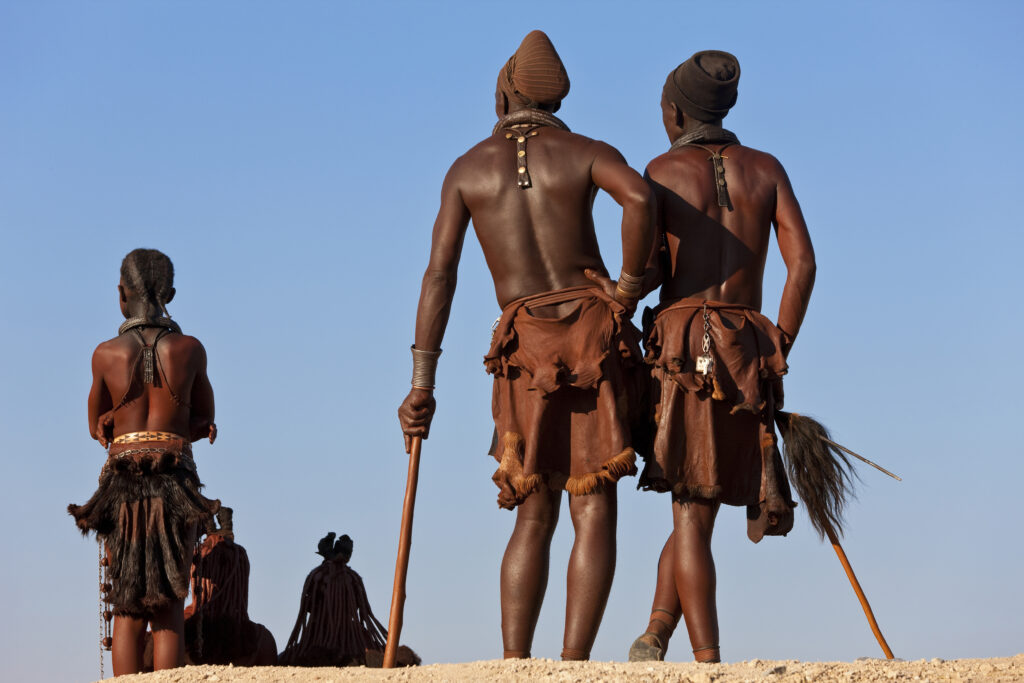
Africa is unlike anywhere else, and it’s challenging to get used to. The people are different, the customs are different, and the food is… well, deliciously different. But don’t let that scare you away!
While it may be tempting to get frustrated by the slowness of things or unfamiliarity of how things are run while you’re visiting Africa, I strongly encourage you not to do so—the best way to approach your trip is with an open mind and an open heart—you’ll see things that will make you laugh and cry at the same time. Still, ultimately, you’ll come away with a better understanding of living in harmony and gratitude.
How To Be Prepared For Your Trip To Africa!
A good travel insurance plan is essential.
Travel insurance is a good idea for any trip, especially for travels to Africa. A good travel insurance plan can cover your medical expenses and lost luggage if you’re injured, or an accident happens on your trip. It can also cover cancellations and interruptions of travel plans due to unexpected events like personal injury or the death of a close family member. Even if you are healthy when you book your flight tickets or hotel accommodations in advance, it’s important that you purchase an international health insurance plan as well as trip cancellation/interruption coverage just in case something unexpected happens during your journey.
Proper health insurance will help avoid financial loss in emergencies such as accidents or sudden illness during travel abroad, where the traveler may require immediate medical attention without access to local hospitals nearby. At the same time, a cancellation/cancellation coverage would assist should there be any change(s) made before departure that might lead to him/her not being able to depart with their original tour group anymore (e.g., change from single occupancy room type where available).
The travel insurance policy should also cover medical evacuation costs, lost or stolen luggage, and lost or stolen cash/credit cards. It’s also essential to have an international health insurance plan that covers repatriation (bringing you back to your home country) in case of death or severe illness during your trip. In addition, some policies may offer coverage for car rental damage, trip cancellation due to natural disasters (such as earthquakes or volcanic eruptions), and even coverage for lost luggage.
Visa
Please, please, please don’t make a mistake I made with my initial plans to start in Kenya first. Thoroughly research all requirements for proper documentation, like visas for entering each country.
Many different types of entry visas are available for people traveling around Africa. These include tourist visas, business visas, and study permits. Before making your plans final, you should contact the embassy or consulate of each nation where you plan on visiting for information about their specific requirements and procedures regarding obtaining one of these documents so there are no surprises when getting ready for your trip!
Vaccinations
You should also check with your doctor about which vaccinations you need or the Visa requirements for the vaccine required. Researching the different types of vaccines and their effectiveness and discussing them with your physician is equally important. Depending on where you are traveling and what kind of activities you’ll be doing, there may be certain vaccinations you do not need or will not benefit from as much as others. For example, if you are only visiting urban areas for a short time and will not be engaging in any activities that could put you at risk (such as hiking or camping), getting vaccinated against hepatitis A might not be necessary.
On the other hand, if your trip involves spending a lot of time outdoors or in rural areas where food safety issues are prevalent—or if there is potential contact with locals who come from areas where diseases like malaria and yellow fever still exist—then getting vaccinated against those illnesses would probably be beneficial.
Here is a list of recommended vaccinations:
- Hepatitis A
- Hepatitis B
- Typhoid Fever
- Meningitis, including bacterial meningitis (which can be prevented by a vaccine called “meningococcal meningitis”)
- Polio
- Tetanus/Diphtheria/Pertussis (the combination vaccine for these three illnesses is known as “DPT” or “diphtheria, pertussis and tetanus”)
- Yellow Fever
Malaria is a real threat, but so are other diseases.
Taking malaria prevention measures before you travel is important because if you’re bitten by a mosquito infected with the malaria parasite, it could lead to severe illness or death.
Many mosquitoes can transmit malaria, but they all share one thing in common: they bite at dusk and dawn. To avoid being bitten by these mosquitoes—and therefore contracting malaria—it’s essential that you use a good mosquito repellent whenever you’re outside during these times (and even when it’s not yet dusk or dawn). It’s also advisable to wear long sleeves and trousers whenever possible to keep yourself covered up.
Malaria is a real threat, but so are other diseases. Don’t underestimate the dangers of malaria. It’s possible to contract malaria in Africa even if you take precautions against it. Malaria causes fever and chills, headaches, body aches, nausea, and vomiting—and can lead to death if not treated properly.
While taking anti-malarial medication is recommended for most travelers to Africa (especially those who will be spending time outside of cities), some people are more at risk than others:
- Children under five years old
- Pregnant women
- Elderly people over 60 years old (when traveling to areas where there’s no reliable health care)
Pack medical kits.
In Africa, you’re undertaking an adventure requiring much preparation. This is where you need to be as prepared as possible, and one crucial aspect of this is packing your medical kit. It’s essential to ensure you have the proper medications for common ailments likely to occur on your trips, such as allergies and motion sickness.
Packaging everything that can help you or someone traveling with you who becomes sick or injured while traveling through Africa is equally important. Everyday things to add to the medical kit are sunscreen, insect repellent (especially if you’re going during a rainy season), hand sanitizer, bandage, and gauze so that if something happens while on safari or hiking through a country’s national parks—or even just in a car accident—you’re ready for it! Add in those Iboprofuen and Pepitbmol. Shop on Amazon for medical kits starting at less than $20.
The best time to go.
As you plan your trip to Africa, remember that the best time to go depends on where you’re going. The local climate and season can affect this.
For example, tropical regions are hot and humid year-round, while arid areas are dry with little rain throughout the year. Temperate regions have mild winters but are wetter during spring and fall. Deserts are usually hot in summer—even at night—but can be cold during winter (in Algeria). Mountainous regions may experience snowfall during colder months (like Mount Kilimanjaro).
Your trip will likely occur sometime between December and June: these are considered “safari” seasons in southern Africa because they offer optimal weather conditions for wildlife viewing trips across several different countries (eastern South Africa, Botswana, and Namibia).
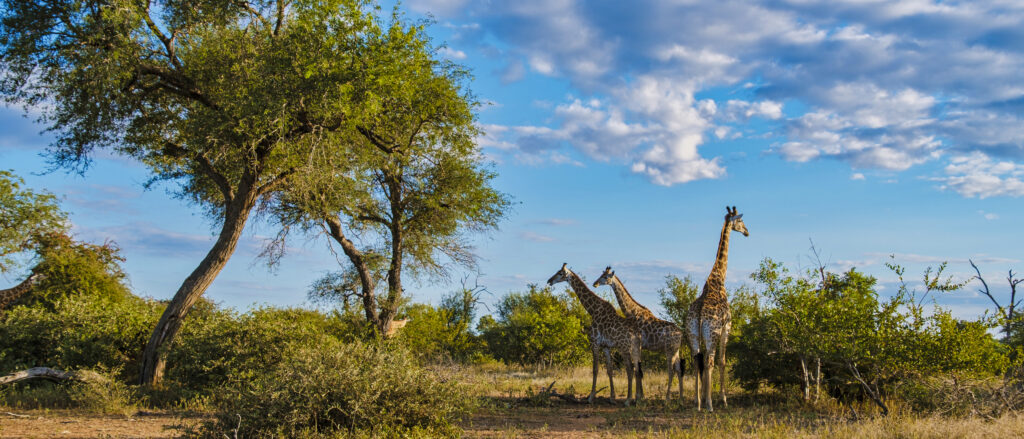
The best time to go also depends on what you’re looking for:
If you want to see the most extensive variety of animals, it’s recommended to travel between March and June, when most species are breeding. However, it would be best to travel between October and December to experience the “Big Five” (lions, leopards, elephants, rhinos, and buffaloes). This is when most of these species are born.
If you’re looking for the most affordable trip, then it’s best to travel during the shoulder season between November and February. This period is ideal because it offers mild temperatures and low rainfall (but still has plenty of wildlife).
If you’re looking for a more luxurious African safari experience, then it’s best to travel during the peak season between December and February. This is when most lodges are fully booked and offer great rates.
Bring your water bottle and learn where to fill it up.
A lot of the water in Africa is unsafe for drinking, so bring a reusable water bottle and learn how to fill it up. If you have any concerns about tap water quality at home, consider using a filter that can be used while traveling. Many are sold on Amazon here.
If you visit Africa and want access to safe drinking water during your stay, look for fountains with signs stating “free safe drinking” in English or another language that’s common around where you are staying. You’ll also see these fountains marked with symbols. When filling up your bottle at these fountains, ensure that others are drinking from that fountain —that would indicate that something isn’t quite right with its contents!
Respect the local customs
Before traveling to the continent, please remember to respect its culture. You may be visiting countries that are still underdeveloped and have not yet reached modern standards of living, so there are some things you need to consider before traveling.
For example:
- Dress appropriately at all times. You don’t want to offend people by showing too much skin or dressing like a tourist (too many souvenirs or oversized clothes). Some African cultures frown upon women wearing short skirts or sleeveless tops in public places, even more so when visiting holy sites in Muslim countries such as Iran and Saudi Arabia!
- Don’t be too loud or quiet either; remember that foreigners tend not to appreciate being stared at while they eat their lunch on the street without speaking a word unless told directly first by locals themselves, who ask them something like “where are you from? Why did come here?” And if they don’t answer right away, smile politely while waiting patiently until they’re ready before continuing your conversation with them – because remember: “Africa is not just a destination where one goes for vacations but rather one where one goes home!”
Currency
Make sure you have the correct currency in advance. The exchange rate is better at local banks than at hotels, and some smaller towns don’t have ATMs.
When traveling to Africa, bring small bills as many places do not accept large denominations. Additionally, if you plan on using a credit card in Africa, make sure it has a special chip that allows for use outside Europe or North America (e.g., Visa, MasterCard).
Bring a converter for electric plugs.
Bring along a converter if you plan on using your electric appliances while traveling in Africa. A converter is a device that changes the voltage of an electrical outlet, allowing you to use your devices with little hassle. They are small, lightweight, and easy to pack — plus, they will enable charge electronics anywhere in the world! For example: If someone is traveling from America with an iPhone 7 Plus (which takes 1 amp), they will need a U.S.-to-U.K. adapter because their phone needs 2 amps but only has one adapter plug (the other side would be “Type G”).
What to wear
Wear clothes that are comfortable and durable. You will want to be able to move around quickly, and you don’t want your clothes to rip or get dirty. Don’t wear loose-fitting clothing, as these can become caught on branches or thorny bushes. Instead, choose baggy clothes with plenty of pockets where you can store extra items like band-aids in an emergency.
Wear clothes that can be layered if necessary: When traveling in colder climates, it is important to have multiple layers so that it is easy for one layer to come off when the sun comes out later in the day or when it gets too warm later in the evening when temperatures cool down again after sunset (especially at higher altitudes).
Choose appropriate clothing for different types of weather conditions: For example, if visiting a hot climate such as East Africa during summertime (December through February), dress accordingly by wearing lightweight fabrics like cotton shirts and pants made from natural fibers such as linen rather than polyester blends which tend not only retain heat but also cause discomfort due their static properties; conversely if going somewhere colder such as South Africa during winter then heavy fabrics like wool trousers are going provide warmth without having any uncomfortable static electricity build-up beneath them due their insulating properties—so long story short always keep an eye out for weather forecasts before leaving home so that you avoid any unpleasant surprises!
Learn basic phrases in the local language.
Though this might not apply to every destination, learn how to say hello and goodbye in the country’s language. You’ll also want to learn a few other phrases that will come in handy when interacting with locals, such as asking for directions or help with something. You should also know how to ask for food, water, or a bathroom if necessary. If you’re traveling alone, it may be best to memorize these phrases instead of relying solely on Google Translate—translating an entire conversation could take too long and cost you precious time on your trip!
If you’re planning on staying somewhere where English is spoken but not widely used by locals (like some parts of Kenya), keep this advice in mind: even though there might be some people who can speak English well enough to use it as their native tongue; they are likely still bilingual and much more comfortable using their mother tongue! Therefore learning some basic phrases before visiting will allow one more opportunity for interaction during any given day/weekend away from home.
Make sure you have an international calling plan on your smartphone before you leave home.
Before leaving home, ensure you have a data plan that works in the country you’ll be traveling to. If not, staying in touch with friends and family back home will be complicated and costly. You can also use Whatsapp to call friends and family back home for free with a Wifi connection.
Download offline maps of cities and towns you plan to visit.
Download offline maps of cities and towns you plan to visit before traveling, especially if you don’t have a data plan. This can be done on any device by using Google Maps, which allows users to download maps for their specific location. For example, suppose a traveler is going on a safari vacation in Kenya, and their only Internet access is through their phone while they’re away from WiFi hotspots. In that case, he or she should download the map of Kenya from Google Maps, so when it comes time for him or her to navigate through his or her destination city (or country), he/she knows exactly where he/she needs to go without worrying about data charges eating up what little money he/she has left after paying for his airline ticket!
Safety
While traveling to Africa, you may want to avoid walking alone at night. Although Africa is a generally safe continent, there are some areas where you should exercise caution. If you’re in a city, don’t walk around with expensive jewelry or electronics visible; if you are walking alone at night, try to travel with a group of people or take an Uber (or hire another personal driver) rather than hailing taxis on the street.
It is not advisable to visit isolated places without company or knowledge of the area. Some parts of Africa have become less safe over time due to increased crime rates and changing political situations. Do not visit these places unless it is necessary for your trip!
Being prepared for your trip can help make it a success
Being prepared for your trip can help make it a success. First, the best time to visit Africa is between October and April, according to Lonely Planet. This is when you’ll experience warmer weather and less rain than in other seasons.
It’s crucial to pack food and water in your carry-on luggage when traveling through Africa because you might have trouble getting these necessities once you land on an African continent. You should also bring a reusable water bottle to refill throughout your trip so that you don’t need to use plastic bottles or cups that end up in the landfill or ocean—plastic does not biodegrade! It will last forever if left alone. If possible, learn where hotels fill their water tanks so that you can also fill them up during some of your travels!
Respect local customs wherever possible during this journey; otherwise, it could be considered disrespectful by locals who pride themselves on their traditions. For example, avoid wearing shoes indoors (you may be invited into someone’s home) unless invited first by them – this shows respect towards others’ homes/space; always ask permission before taking photos because some people may not want them taken (especially children), especially if they’re dressed traditionally; always ask permission before touching anyone else even if slightly brushing against each other briefly – again showing respect for others’ personhood since all humans are created equal regardless of sex/gender identity/race etc …
Africa is one of the best travel destinations in the world
Africa is one of the world’s best travel destinations. It’s home to some of the most incredible scenery and wildlife, as well as a rich history and culture.
The continent has an enormous variety of landscapes, climates, and people. There are around 2,000 languages spoken across Africa (and more than 30 in South Africa alone). With such diversity comes amazing variety in cuisine, fashion styles, and music—you name it!
Leave a Reply
© copyright 2024 Congologie Studios